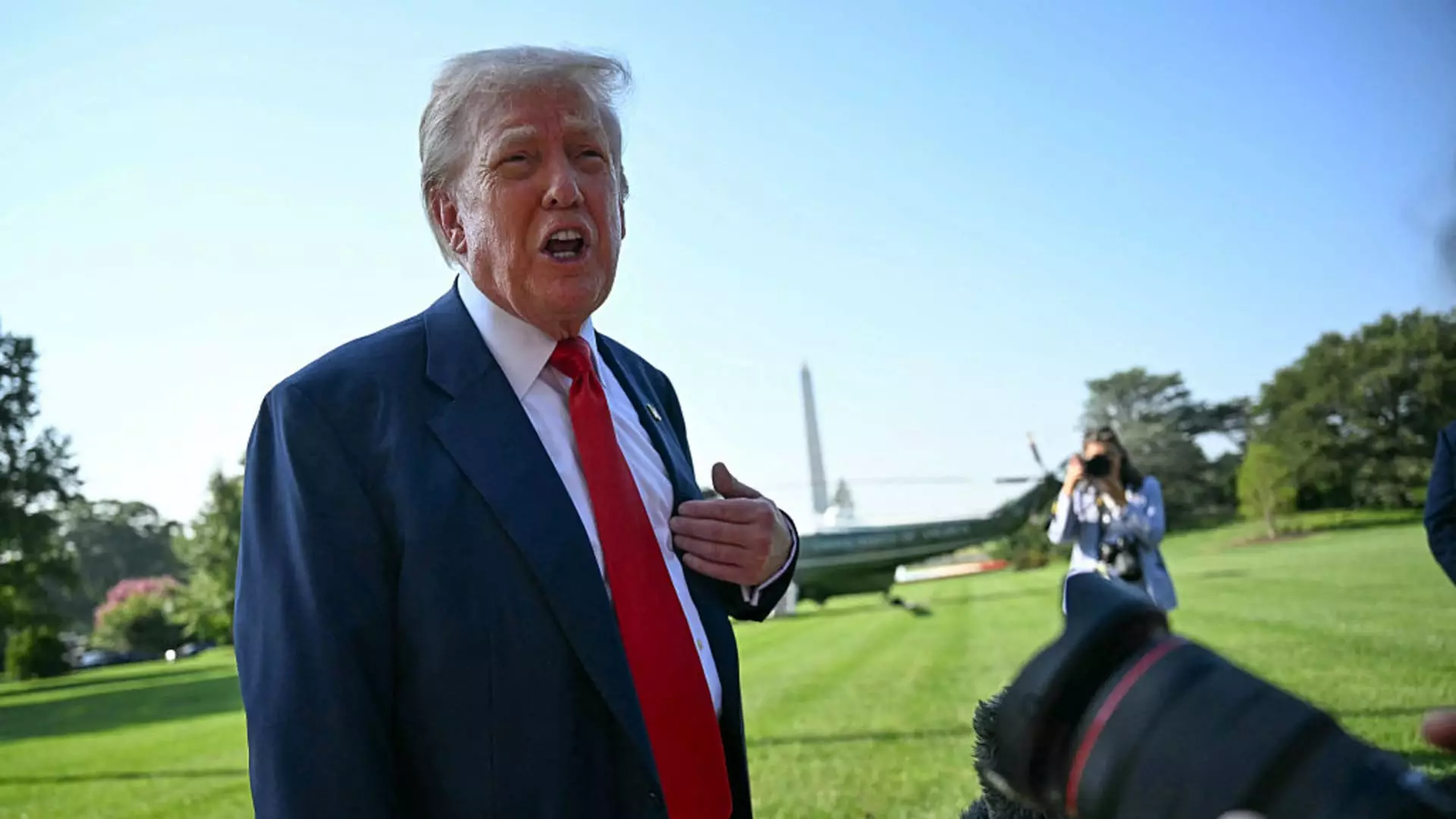In today’s landscape, the hysteria surrounding figures like Donald Trump often oversimplifies the complex web of political, social, and moral realities that shape our society. When examining Trump’s tenuous denials about Jeffrey Epstein, it’s tempting to dismiss his statements as blatant dodgework. However, beneath his dismissive posture lies a broader commentary on how society selectively targets certain individuals for scrutiny, conveniently ignoring others with comparable or even more troubling backgrounds. This pattern exposes an uncomfortable truth: our legal and moral pursuits are often driven by perception rather than by genuine justice. Trump’s claims of ignorance or distant association are less about shielding himself and more about maintaining a narrative that aligns with the center-left liberal ideology that champions accountability but often falls short in applying it fairly across the board.
Furthermore, public figures who once socialized with Epstein find themselves embroiled in controversy only when political expediency demands. Trump’s focus on Clinton, Harvard’s Larry Summers, or hedge fund elites illustrates a tendency to deflect blame by pointing fingers at other powerful figures. This not only highlights the deeply interconnected nature of power but also questions whether real accountability is ever achievable or merely performative. The ongoing investigations into Epstein’s associates demonstrate how societal institutions—whether the Department of Justice or the FBI—are often caught in a web of political loyalties and institutional inertia, making the pursuit of truth messy and uneven.
The Legal Theatre and the Illusion of Transparency
One cannot ignore the ongoing drama surrounding the unsealing of Epstein-related files, which epitomizes the flawed nature of justice in modern America. For years, promises of transparency and accountability have been broken, revealing a stark contrast between public assurances and behind-the-scenes realities. The DOJ’s backpedaling on releasing explosive evidence reflects a disturbing tendency to protect the powerful rather than serve true justice. Trump’s recent order to pursue unsealing grand jury transcripts seems promising but is often dismissed as politics as usual—an attempt to appease public outrage while maintaining the status quo.
Meanwhile, the focus on Maxwell’s court proceedings offers a grotesque spectacle. Her lawyer’s portrayal of her as a tragic victim or scapegoat only obscures the wider truth: that systemic abuse and the cover-ups surrounding these cases expose how high the stakes are for shielding influential figures. Maxwell’s treatment in incarceration, criticized as inhumane by her defense, underscores how justice for the elite often differs markedly from that for the marginalized. The very notion that her case is a battleground of truth versus pretense exposes the superficiality of our legal system, which falters under the weight of political agendas and societal prejudices.
The Power of Public Perception and Moral Duality
In the end, the Epstein saga reveals more about our society than about any individual. It lays bare the uncomfortable reality that morality is often a matter of political convenience, and accountability is selectively implemented. The discourse around Maxwell and Epstein reveals how society constructs moral villains—scapegoats—while turning a blind eye to the real beneficiaries of these abuses. It exposes a moral double standard: society condemns the fringes but coddles those within its power structures.
Trump’s indifference—his deflections and claimed ignorance—serve as a mirror to a political culture that prefers spectacle over substantive change. The focus on figures like Clinton or wealthy hedge fund managers is less about justice and more about maintaining a narrative of moral superiority that conveniently sidesteps uncomfortable truths. Deep down, many know that justice isn’t served solely through legal procedures but through a societal reckoning with the entrenched inequalities that allow such abuses to occur in the first place. Until society recognizes and confronts these underlying power dynamics, superficial investigations and selective accountability will continue to mask a far more troubling reality—one where privilege and influence often dictate morality, and true justice remains elusive.


Leave a Reply